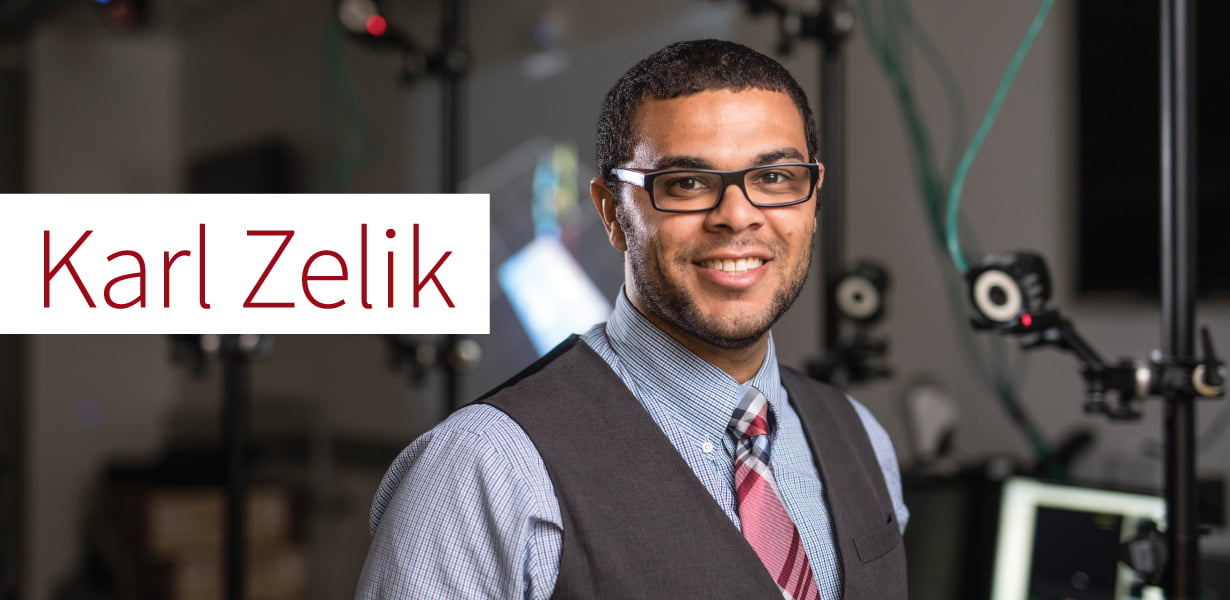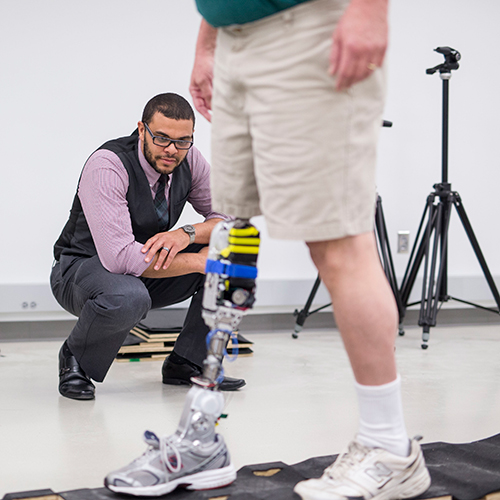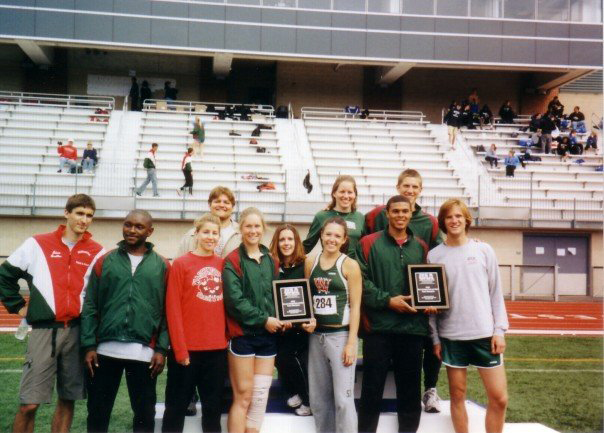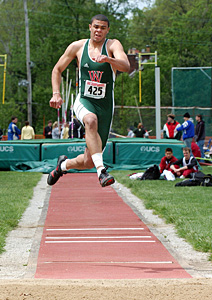Young Alumni: Karl Zelik

As one of four active brothers growing up in Pittsburgh, Karl Zelik frequently had stitches and broken bones. That experience built the foundation for his career as a mechanical and biomedical engineer at Vanderbilt University who has a passion for assistive technology that could help millions of people living with pain and disability.
Zelik, who earned bachelor's and master's degrees in biomedical engineering at the School of Engineering & Applied Science in 2007, now is an assistant professor of mechanical engineering, of biomedical engineering, and of physical medicine and rehabilitation at Vanderbilt, where he runs the Biomechanics & Assistive Technology Laboratory. His ultimate goals are to restore health, mobility and independence to people with disabilities, to prevent injuries that cause physical disabilities, and to enhance human capabilities beyond biological limits.
In July, Zelik and his team debuted "smart underwear," a garment designed to prevent low-back strain and pain in those who perform repetitive lifting, twisting or leaning. More than 80 percent of U.S. adults will experience low-back pain, costing $30 billion in medical expenses and more than $100 billion annually in lost wages and productivity.
Zelik's interest in a solution for this also is a personal one — repetitive lifting of his 2-year-old son brought a new awareness of the common affliction.

“One of my mottos is ‘fail frequently’ — I tell that to all of the students in my lab ... It often takes a lot of failure to uncover new engineering solutions or advance scientific understanding.”
"I started thinking about whether there was some sort of wearable technology that could fit into an everyday lifestyle, something that was not heavy, not obtrusive and not expensive," Zelik says. "As I learned more about the biomechanics of leaning and lifting tasks and why there are high forces on the spine, I discovered that it was theoretically possible to create a clothing-like exoskeleton that could offload the low back. Then by integrating sensors and electronics into the clothing, low-back assistance could be engaged or disengaged as needed, by tapping the garment or using a smartphone app we developed."
Zelik challenged his students to develop prototypes, which have since shown in their lab tests the ability to reduce low-back muscle activity during repetitive lifting and leaning movements. The lab plans to continue its research into the undergarment's design and effectiveness before moving to clinical research and potentially commercialization.
Zelik's experience in developing medical devices and prosthetic limbs came while earning a doctorate in mechanical engineering at the University of Michigan. After a two-year postdoctoral fellowship in Rome, Zelik and his wife, Tiffany, moved to Nashville, where he has been on the Vanderbilt faculty since 2014. In his first three years, he has received the International Society of Biomechanics' Promising Scientist Award, its highest award to researchers early in their careers, and the American Society of Biomechanics' Young Scientist Post-doctoral Award. He also has funding from the National Institutes of Health, the National Science Foundation, industry, foundations and institutional research funds from Vanderbilt, which recently built a 3,000-square-foot state-of-the-art motion analysis lab for Zelik and his colleague, Michael Goldfarb, a world leader in wearable robotics.


Zelik credits the opportunities he had at WashU — both as a student in the John B. Ervin Scholars Program and the Enterprise Holdings Scholars Program and as an All-American track-and-field athlete — for how he mentors students in his own lab. Although his senior design project didn't work, he learned more about engineering, problem-solving and perseverance than if it had succeeded, he says.
"One of my mottos is 'fail frequently' — I tell that to all of the students in my lab," he says. "Particularly for undergrads, as long as they are learning things and developing new skills, it's not always important that their project succeed in the traditional sense. It often takes a lot of failure to uncover new engineering solutions or advance scientific understanding."
Back to Engineering Momentum